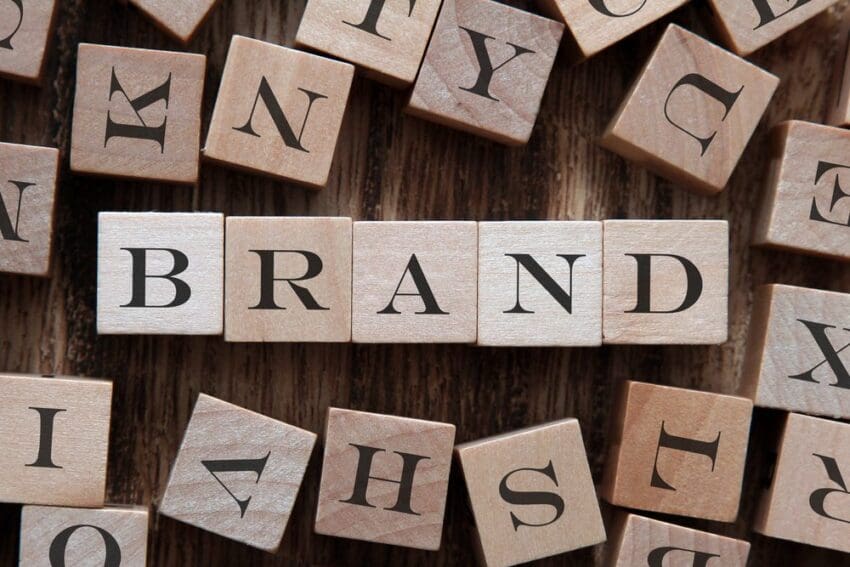Before you consider the fundamentals of what goes into your brand, I would draw your attention to the old saying “Your brand is not what you say about yourself, but what other people say about you.” The test of your brand authenticity is what your customers, competitors and own people are saying about you. If there is a gap between the two, you have a real business problem on your hands.
When setting up a business, one of the most important things to consider is your brand. Getting your brand right matters, it’s one of the most valuable attributes your company has. It should sit at the core of everything you do. A brand goes much further than what your logo and sales material will look like, it creates your image as a company and generates feelings from your target customers. Therefore, the question you need to ask yourself is – what is the personality of my business and how do I want it to be perceived? What feeling do I want my brand to generate when my customers see the logo or hear its name?
When I was formalising my brand guidelines, first and foremost, I set out what the business is about – why it exists. My own company, Ellipse, was designed to bring a new way of working and to challenge the traditional way insurers covered death and disability benefits offered by companies to their employees. I believed that sector of the insurance market was providing poor service through chronic under-investment in technology.
So, I went through the various components that make up a brand and at each point I wrote down what I wanted Ellipse to do and how I wanted the brand to be perceived. Every step of the way we kept the ‘why’ in mind and all elements of the brand grew from and around that ‘why’.
What is the core philosophy that sits at the heart of the brand?
• We are here to challenge the status quo.’
• ‘We will transform the group risk insurance market by stealth. We do it quietly, confidently and consistently.’
Your equivalent statements will probably be very different because your business is very different, but you should be able to boil it down to its essence within a few simple sentences that you, your colleagues and your customers will immediately associate with it.
Our principles
My next step was to create a list of the characteristics I wanted everyone who worked at Ellipse to share. These should explain how you act day to day. They define your culture and the overall personality of the business. Ours was to become and remain consistent. We included ‘We make it possible for employers and employees to feel protected’ and ‘We treat people how we’d like to be treated’.
Logo
A logo is the foundation of a brand. You need to create something different and instantly recognisable. We created something ownable and professional, but also distinctive in our industry. As with all elements of a brand, you need to set clear guidelines on how your logo is used.
Typography
Typography creates personality and sets you apart from your competitors. Flexibility and consistency are two further important considerations. As with all other elements in our brand ours established difference and communicated clearly.
Colours
Colour plays a fairly substantial role in purchases and branding and can influence how the brand is perceived. Our industry wasn’t known for its stunning colour palettes. We carefully considered, as you should, who our audience was and created a dynamic and stand out colour palette. We purposefully went for bold and bright colours to express that our processes would be different.
Tone of voice
A company’s tone of voice will inform all of its written copy, including its website, social media messages and emails. It’s an expression of people behind the brand. It must be distinctive and unique. It also builds trust. We wanted our words to back up our actions, how we speak to people builds credibility. The foundation of our tone is the voice of our personality which has – no jargon, no padding and is relevant and empathetic.
It’s likely that you have already considered these different elements – they are integral to why anyone creates a business in the first place. It is much more valuable to have them in a formal brand guideline document. As well as giving you the opportunity to remind yourself of what your business is about, it will help any future employees and colleagues to understand too. It should also contain guidelines on how to use the various elements of the brand.
Whatever you want your brand to represent, whether it succeeds or not will ultimately be decided by your customers. It’s the customers’ perceptions that count. Setting your brand principles and truly living by them will give you the greatest chance of success – your customers perceiving you as you would like them to. A brand may be intangible and its value hard to measure, but it does have a value and is vitally important to every business.
Since 2009, when Ellipse was established to challenge the status quo and bring to the market a new and different way of doing business, we have moved from a challenger to a more established player. We have become recognised as the digital group risk insurer.
Nearly six years later we constantly check on what our customer, competitors and own people are saying about the Ellipse brand. We ask ourselves is there a gap, and if there is, what will we do about it.
Image: Brand via Shutterstock


